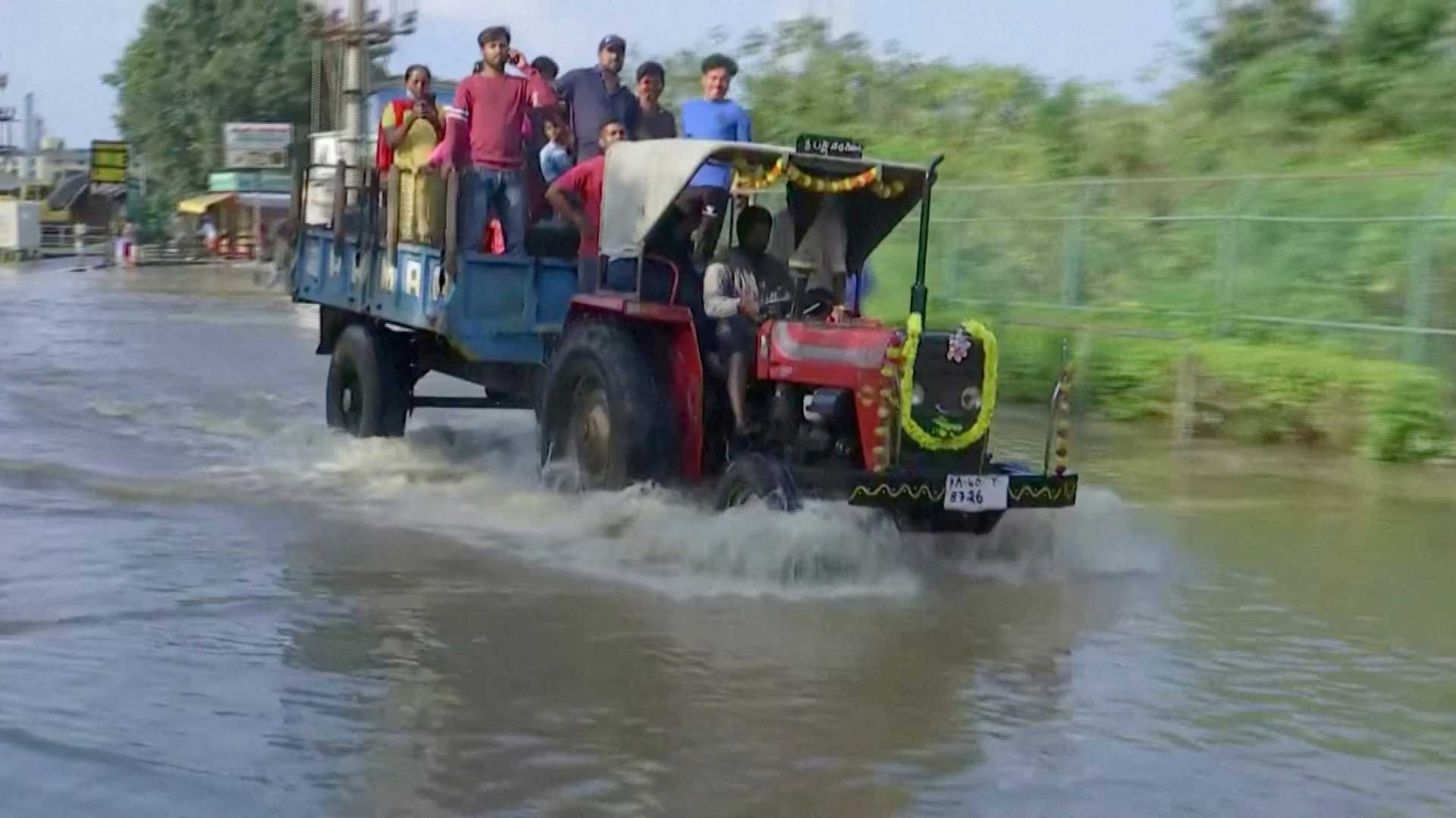News
Bengaluru’s Battle with Torrential Rains: A City in Recovery

Bengaluru, often referred to as India’s Silicon Valley, recently endured a period of heavy rainfall that significantly disrupted daily life across the city. The torrential downpour transformed the city’s streets into waterlogged rivers, presenting substantial challenges to commuters as traffic jams and submerged pathways became widespread.
As the rain began to subside, the city started its journey back to normalcy. In an unexpected turn of events, residents of Yelahanka were astonished to discover fish swimming in the flooded basement of Kendriya Vihar, an apartment complex previously home to the late President Dr. APJ Abdul Kalam. This incident highlighted the severity of the flooding, turning into a viral sensation across social media platforms as residents and fire services worked to clear the water.
Manyata Tech Park, known as one of India’s largest office complexes, was not spared. Continuous rainfall since Monday night led to a total submersion of the tech hub, effectively transforming its extensive 300-acre campus into a “swimming pool.” Viral videos showcased the disruption of daily operations. However, within a day of the rain abating, efforts to restore normalcy were underway, with management successfully pumping out water and reopening the campus for employees.
The rain’s impact was particularly severe in the Yelahanka Zone, with Chowdeswari Nagar recording 73.5 mm of rainfall and the Jakkur area registering 65.5 mm. The Bruhat Bengaluru Mahanagara Palike (BBMP) reported extensive efforts from its disaster management team, who have been tirelessly working to alleviate the flooding impacting over 100 homes. Reports indicated that a total of 142 residences were flooded, 39 trees were uprooted, and swift action has led to the removal of 26 of these trees, with flooding documented in 52 locations across the city.
The India Meteorological Department attributed the heavy rainfall to a low-pressure system over the southeastern Bay of Bengal causing unstable weather conditions. Looking ahead, the Karnataka Deputy Chief Minister DK Shivakumar addressed the media from his Sadashivanagar residence, urging opposition parties to refrain from criticizing the government’s handling of the situation. “It is not possible to control nature; the government is doing the best it can manage,” stated Shivakumar, reassuring residents of further preventative measures, including school closures as a precaution against potential future rains.












